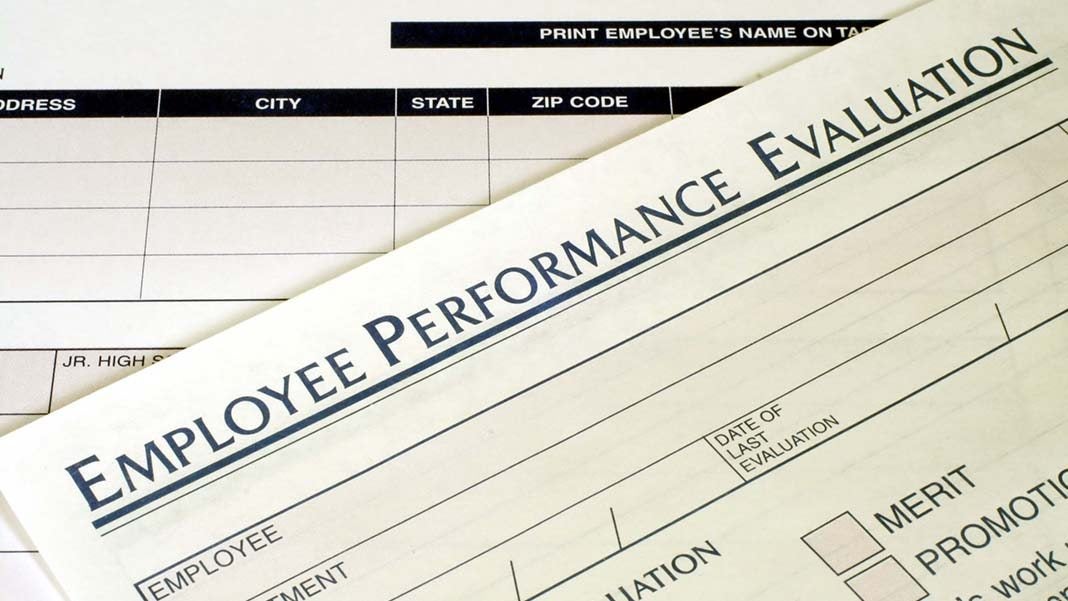Still Doing Annual Performance Reviews? Improve Your Process
By: YEC

One of my first jobs was working as a technical analyst at a large consulting firm. I worked at the end of a row of cubicles, at a place where the closest thing to company culture was the bacteria on the door handles. I was great at my job but was a tiny cog in an enormous machine, where people were working for a paycheck and not a purpose.
Over the years, I have learned that work can be so much more than that. It can be a place where people can be supported to become better versions of themselves. It can be a place where people can be united in purpose to fulfill a company mission. And what I have seen is that this people-focused strategy actually improves individual performance and positive outcomes for the business. A trend has been growing in the last decade where many leaders like Bob Chapman, Simon Sinek and Shawn Murphy are changing the way we work for the better.
A perfect example of this shift is that companies are moving away from traditional performance reviews, getting rid of them altogether, or only using them as part of an overall performance management strategy. Last year, according to the Washington Post, 10 percent of Fortune 500 Companies replaced their annual performance reviews and ranking systems with feedback and coaching conversations throughout the year. In doing so, they are cultivating a different kind of culture. (You can read about why General Electric did it here.)
Performance reviews are designed to essentially grade employees based on their performance. That data is often processed by an outsider, someone on the HR team or a level or two above the employee’s manager.
Performance reviews fail for several reasons:
- They occur too late to actually influence performance in real-time.
- People feel like they are being graded which can lead to highly stressful and competitive environments.
- Researchshows that they can be biased.
- They are not accurate. Employees know they will soon be evaluated and can step-up their game in Q4, eclipsing poor performance during the rest of the year.
- Managers cannot make an accurate assessment due to the above.
At my company, 15five, a company meant to help managers better communicate with employees, I have found great success with improved employee performance and satisfaction due to our weekly cadence of questions and answers. The most important information gets surfaced and leads to conversations where our managers can coach employees through their frustrations and blocks. Your company may not be ready to get rid of reviews altogether, but this is an excellent way to augment the evaluation process:
Weekly Check-ins
Managers know that stellar employee performance comes from empowering people and not micromanaging them. But if you’re no longer in complete control of the plan of action, how do you stay apprised of what’s really going on with your team and in your organization? It all comes down to regular communication, and there are lots of software tools to help you do that, including ours.
Weekly check-ins that address performance, engagement and culture allow you to surface issues before they become big problems and ensure that your people have the support, resources and connections needed. An added bonus is that the organization will become a place where truth and transparency are honored.
Quarterly Performance Snapshot
So many companies break up the year into quarters. It’s a natural time to look at companywide financials and either reaffirm or reassess goals. Managers can use this time to look back on past conversations and see how employees performed relative to their quarterly goals, and discuss concerns for the coming quarter.
The end of the quarter is a good time to have conversations about what an employee’s future might look like within the company. Get clear on what they desire and how that syncs up with the needs of the company. Do they want to manage their own team? Become a subject matter expert? Let them know exactly what is expected for them to be promoted. Record this in a shared document or use OKR software to track quarterly objectives and key results, a practice that worked well for Google.
Separate Compensation Review
You might be asking yourself, How will I know how to promote and increase compensation without a formal process every year?
The answer is to decouple the appraisal from the compensation review. Performance-based compensation and promotion decisions have to be made every year, but wrapping that together with coaching and feedback is a bad idea because it can cause employees to feel they are in an adversarial conversation rather than a collaborative one. The experience can be that the manager/company is not truly being supportive of growth; they are just trying to nitpick to avoid giving a raise.
Look back to the coaching and feedback conversations over the past year. How have employees reacted? Have they improved? This will inform how they take in new information and develop new skills—a good indicator for how they will perform in a new role with a steeper learning curve. Now is the time to have a clean conversation about whether they hit the metrics that were laid out at the start of the quarter. Then determine if they are eligible to receive commensurate compensation. Focus on numbers to evaluate them for advancement, not the qualitative feedback that fed into the actual improvement.
Author: David Hassell is CEO of 15Five, performance management software that includes goal tracking, OKRs, employee feedback, and peer recognition.














